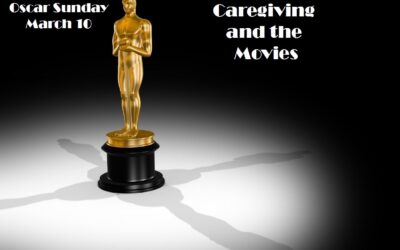May marks National Multiple Sclerosis Awareness Month and at the May 18 Nancy Davis Foundation annual Race to Erase MS Gala Event, Emmy Award-winning actress Marg Helgenberger will serve as a celebrity champion and award presenter to actress Teri Garr who lives with MS.
Sherri Snelling spoke to Marg about her recent exit after 12 years as star of TV’s drama series, CSI, and how she is stepping into the spotlight as a champion for those living with MS, a disease which claimed her father’s life almost 25 years ago when Marg was just starting her acting career.
Marg Helgenberger sounds as strong and in charge as she did playing Catherine Willows, the independent single mom and forensic crime scene analyst on CBS-TV’s top-rated drama series, CSI. However, as we talk about her recent work to bring awareness and support to those suffering from multiple sclerosis (MS) and how this disease impacted her dad and her whole family, the vulnerability of youth and past painful memories resonates in the voice of this ageless actress.
In the 1980s, Marg was still a college co-ed at Northwestern University with a future full of promise when she got the call that her father had a devastating chronic illness. Marg thinks back about that day and the five years that her father struggled with MS.
“My dad was a young man when he was diagnosed with MS – he was so full of life and to see this disease overpower him in such a short time was really sad and devastating,” says Marg.
Marg grew up in America’s heartland, a small Nebraska town where fields, farms, family and friends abounded. Her close knit clan included an older sister, her younger brother and her parents. Her mom was a nurse and her dad, Hugh, owned a butcher shop. At first, her father originally attributed the tingling and numbness in his arm to his physically intensive job lugging sides of beef around and constantly chopping and cutting – he thought he just had a pinched nerve. However, as the symptoms progressed and persisted, he was eventually given the diagnosis of multiple sclerosis (MS) – and the prognosis could not have been worse as it was an extremely rare and progressive type of MS.
Multiple sclerosis is one of the numerous chronic illnesses for which there is still no cure, although according to the Nancy Davis Foundation recent research is encouraging. Today, more than 400,000 people in the U.S. and 2.5 million people worldwide live with this insidious disease that attacks the central nervous system. Essentially, the myelin, which is the protective covering for the nerve fibers in the central nervous system, become inflamed or damaged and through this inflammation the myelin becomes scarred, thus forming sclerotic patches. These multiple scars or lesions cause interference with the transmission of signals to the brain and spinal cord that then cause the unpredictable and often debilitating symptoms that MS patients experience such as numbness or tingling in the extremities to periods of blindness and even full paralysis.
Twice as many women as men are diagnosed with MS, and it is typically uncovered when patients are 20-50 years old. While researchers feel there may be genetic predictors for MS, there is no clear connection that one generation passes it to another. In fact, research has not shown any significant findings on how and why certain people are afflicted with MS. What they do know is that no two people experience MS in the same way – some patients may experience some or most of the symptoms and may have periods of full recovery. However, because the disease is not curable, it is a progressive and degenerative disease of varying degrees.
Most patients fall into one of four categories: 1) Relapsing/Remitting (the most common with 85 percent of MS patients in this category where you have flare-ups with periods of remission); 2) Primary/Progressive (continuous worsening of the disease with no flare-ups or remissions); 3) Secondary/Progressive (begins as relapsing/remitting but if untreated becomes primary/progressive); and 4) Progressive/Relapsing (the most rare with continuous decline and increasingly intense flare-ups).
Marg’s father had Progressive/Relapsing MS and was diagnosed when he was only 45 years old.
It Takes A Village
Marg remembers this time as very challenging for her family. Her mom had just recently been diagnosed with breast cancer and underwent a double mastectomy when Marg was a junior in college. Now just a year later, the family was hit by the news of her dad’s disease. In the 1980s they did not have the therapies and medications for MS that they do today. Marg remembers going with her mom and dad to the hospital where he would get corticosteroid shots that would leave him relieved from some of the pain but bloated, unable to sleep and miserable.
It was during this period that Marg decided she wanted to pursue an acting career and the Big Apple was where she had to be. However, she says she felt guilty over not staying in Nebraska to help her mom care for her dad. So often, family members in Marg’s position give up their dreams. But, Marg’s parents were supportive of their daughter and encouraged the pursuit of her acting passion in New York.
As Marg’s career took off, she landed a key role on the TV soap opera, Ryan’s Hope, and began appearing on popular primetime TV shows like Spencer for Hire and China Beach. Meanwhile her dad’s symptoms continued to worsen. Originally he was able to get around with a cane but he quickly became wheelchair-bound and could no longer work. Since her mom had to continue her job as a nurse to make ends meet, her father was often home alone. One day his wheelchair got jammed as he tried to get around a hallway corner and he was stuck there for hours. That is when the family hired a professional health care worker to provide home care for Marg’s dad while her mom was at work. With money tight, Marg, her mother and her brother formed a caregiving tag team with her mom and brother performing the physical care and Marg providing a lot of the financial resources. Marg also tried to get home as many weekends as her job would allow.
It was during this period that Marg said she really appreciated her small town, rural America upbringing. The head of the local Jaycees (also known as the United States Junior Chamber), a civic organization for leadership training for those ages 18-41, contacted Marg and said they wanted to hold a fundraiser to buy a wheelchair-equipped van for her dad and family. They were able to raise enough funds that Marg could match the amount they raised and they could purchase the vehicle.
“It really struck me as so sweet and that there is such a power of community when someone is in need,” says Marg.
It was this experience that planted the seed of inspiration in Marg to become a champion to help others. While her acting career continued to soar with roles in TV (Perfect Murder, Perfect Town, The Tommyknockers) and films (Erin Brockovich, Mr. Brooks), she also became a passionate advocate for breast cancer awareness and fundraising, hosting an annual golf tournament in her home state to fund breast cancer treatments and research at the local Omaha hospital.
She told me that “not a day goes by that I don’t think about my dad,” and now her advocacy is bringing more awareness to finding a cure for MS.
 “While I am so proud of the progress made in breast cancer treatments and the small role I could play in helping people, multiple sclerosis just doesn’t get the kind of attention as other diseases so I want to shine a spotlight on this disease which is so devastating for families,” says Marg.
“While I am so proud of the progress made in breast cancer treatments and the small role I could play in helping people, multiple sclerosis just doesn’t get the kind of attention as other diseases so I want to shine a spotlight on this disease which is so devastating for families,” says Marg.
She will be in the spotlight in support of MS awareness on May 18 and I know whatever role Marg takes on – actress, advocate, caregiver – this star will continue to shine at whatever she chooses.
Watch Marg’s interview from the Race to Erase Event
This blog is adapted from Sherri Snelling’s book, A Cast of Caregivers – Celebrity Stories to Help You Prepare to Care. To read more of Sherri’s interview with Marg, click here to buy the book now.






What a great article, Sherri! Those of us with MS appreciate Marg’s effort to raise awareness and the story she shared is deeply touching.
This website truly has all of the info I needed concerning this subject and
didn’t know who to ask.